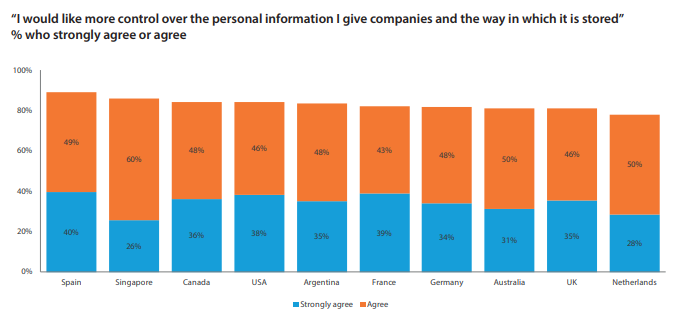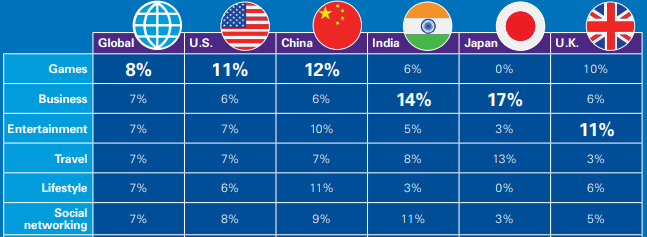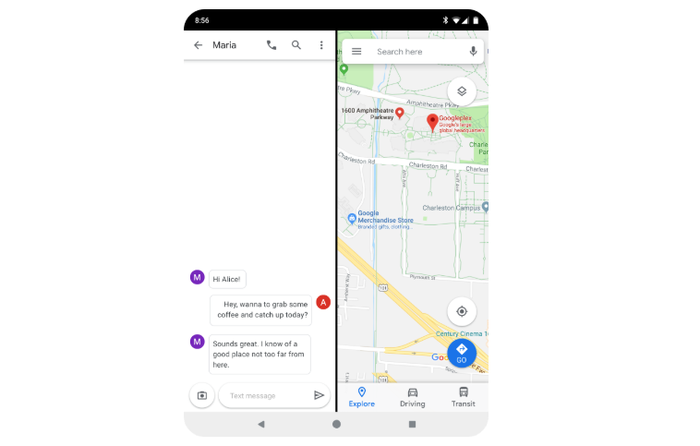Qottab, Quindim or Quesito? Google releases Android Q beta
Every year Google releases a new version of Android, and while it is marginally entertaining to guess what sweetie it will be named after, it also provides a very useful roadmap for the future of mobility.
March 14, 2019

Every year Google releases a new version of Android, and while it is marginally entertaining to guess what sweetie it will be named after, it also provides a very useful roadmap for the future of mobility.
In controlling roughly 74% of the global mobile Operating System (OS) market share, Android is in a unique position to dictate how the ecosystem develops over the short- and medium-term. This year’s update appears larger and more wide-ranging than previous iterations, perhaps representing the significant changes to the industry in recent months.
“In 2019, mobile innovation is stronger than ever, with new technologies from 5G to edge to edge displays and even foldable screens,” said Dave Burke, VP of Engineering for Android. “Android is right at the centre of this innovation cycle, and thanks to the broad ecosystem of partners across billions of devices, Android’s helping push the boundaries of hardware and software bringing new experiences and capabilities to users.”
Privacy updates, gaming enhancements, features to accommodate for new connectivity requirements and addressing the foldable phone phenomenon, there is plenty for developers to consider this year.
Privacy as a product
New demands are being placed on developers around the world when it comes to privacy, but in truth, they have no-one to blame for the extra work than themselves.
This is not to say all developers have abused the trust of the consumer, but numerous scandals over the last 18 months and the opaque manner in which society was educated on the data-sharing machine has created a backlash. Privacy demands have been heightened through regulation and consumer expectations, meaning these elements are slowly becoming a factor in the purchasing process.
There are numerous privacy and security updates here which suggests Google has appreciated the importance of privacy to the consumer. Privacy could soon become a selling point, and Google is on hand with many of the updates based on its Project Strobe initiative.
Perhaps one of the most important updates here is more granular control of the permissions for individual apps. Users will not only have more control on what data is shared with which apps, but developers can no-longer request for consent for a catch-all data hoovering plan, while Google is also cracking down on un-necessary permissions. The team is updating its User Data Policy for the consumer Gmail API to ensure only apps directly enhancing email functionality have authorisation, while the same is being done for call functionality, call logs and SMS.

Source: GDMA: Global data privacy: What the consumer really thinks
Aside from the permissions updates noted above, users will also have more control over when apps can get location data. While some developers have abused the trust of users by collecting this data when irrelevant as to whether the app is open or not, users will now have the power to give apps permission to see their location never, only when the app is in use (running), or all the time.
There are other updates to the permissions side including audio collections, access to cameras and other media files. All of these updates represent one thing; privacy is a real issue and (theoretically) the power is being handed back to the consumer.
That said, Ovum’s Chief Analyst Ed Barton notes the critical importance of privacy features today, however, as Google could be considered one of the main contributors to the root problem, you must question how much trust the consumer actually has.
“It is noteworthy that privacy is something one might reasonably assume to have in most situations in modern life except in one’s digital life where the default expectation is that a vast digital platform knows more about you than your life partner and immediate family,” said Barton. “It is these circumstances which enables the concepts of privacy, personal data control and trust to be highlighted and used as marketing bullets.
��“Privacy in something like an OS is meaningless unless you can trust the entity which made it so with Android Q the question, as always, is ‘how much do you trust Google’?”
Gaming enters the mainstream
Another major update to Android Q looks to target the increasingly popular segment of mobile gaming.
“Gaming remains one of the most popular genres on the app stores, while smartphones have allowed the industry to connect with the masses,” said Paolo Pescatore of PP Foresight.
“This has led to emergence of new games providers and a surge in casual and social gamers, while the arrival of 5G will open further opportunities for cloud based multiplayer games due to faster and more reliable connections and low latency. Mobile devices will be key in this new wave that also promises to bring virtual and physical worlds closer together providing users with immersive experiences.”

Source: KPMG: The Changing Landscape of Disruptive Technologies report
Here, there are two main updates which we would like to focus on. Firstly, Vulkan and ANGLE (Almost Native Graphics Layer Engine) to improve more immersive experiences. And secondly, improved connectivity APIs.
Starting with the graphics side, Android Q will add experimental support for ANGLE on top of Vulkan on Android devices to allow for high-performance OpenGL compatibility across implementations. The team is also continuing to expand the impact of Vulkan on Android, with the aim to make Vulkan on Android a broadly supported and consistent developer API for graphics.
In short, this means more options and greater depth when it comes to creating immersive experiences.
On the connectivity front, not only has Google refactored the wifi stack to improve privacy and performance, developers can request adaptive wifi in Android Q by enabling high performance and low latency modes. There are of course numerous usecases for low latency throughout the connectivity ecosystem, but from a consumer perspective, real-time gaming and active voice calls are two of the most prominent.
Gaming has slowly been accumulating more support and penetrating the mass market, and some of the features for Android Q will certainly help this blossoming segment.
Foldable phones; fad or forever?
Considering the euphoria which was drummed up in Mobile World Congress this year, it should hardly come as a surprise the latest edition of Android addresses the new demands of the products.
“To help your apps to take advantage of these and other large-screen devices, we’ve made a number of improvements in Android Q, including changes to onResume and onPause to support multi-resume and notify your app when it has focus,” the team said in the blog announcement.
There are of course a number of useful features which come with the increased real-estate, one of which is being able to run more than one app simultaneously without having to flick back and forth, as you can see from the image below.

There are of course advantages to the new innovation, but you have to question whether there are enough benefits to outweigh the incredible cost of the devices. The power of smartphone and the astonishing tsunami of cash in the digital economy is only because of scale. With Samsung’s foldable device coming in at $1,980, and Huawei’s at $2,600, these are not devices which are applicable for scale.
Google is preparing itself should the foldable revolution take hold, but mass adoption is needed more than anything else. The price of these devices will have to come down for there to be any chance of these devices cracking the mainstream market, and considering recent trends suggesting the consumer is becoming more cash conscious, they will have to come down a lot.
The price might also impact the development of the subsequent ecosystem. Developers are under time constraints already, and therefore have to prioritise tasks. Without the scale of mainstream adoption, few developers will focus on the new form factor when creating applications and content. With little reward, what’s the point? Price will need to come down to ensure there is appetite for the supporting ecosystem to make any use of this innovation.
We’ve been complaining about a lack of innovation in the devices market for years, so it is a bit cruel to complain when genuine innovation does emerge, but a lot of work needs to be done to give foldable screens as much opportunity for widespread consumer adoption.
About the Author(s)
You May Also Like








.png?width=300&auto=webp&quality=80&disable=upscale)


_1.jpg?width=300&auto=webp&quality=80&disable=upscale)


.png?width=800&auto=webp&quality=80&disable=upscale)